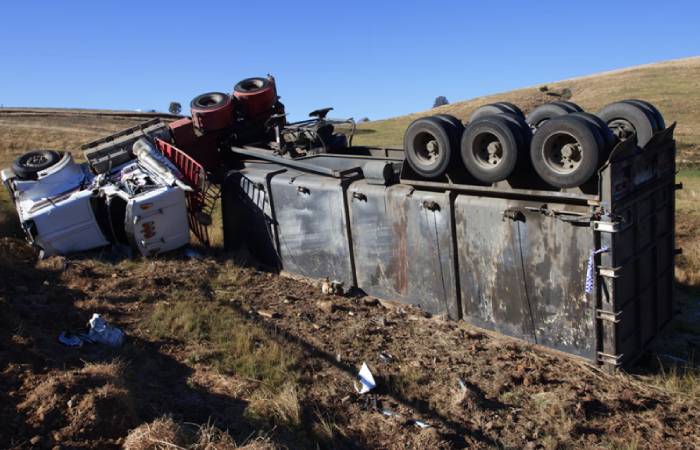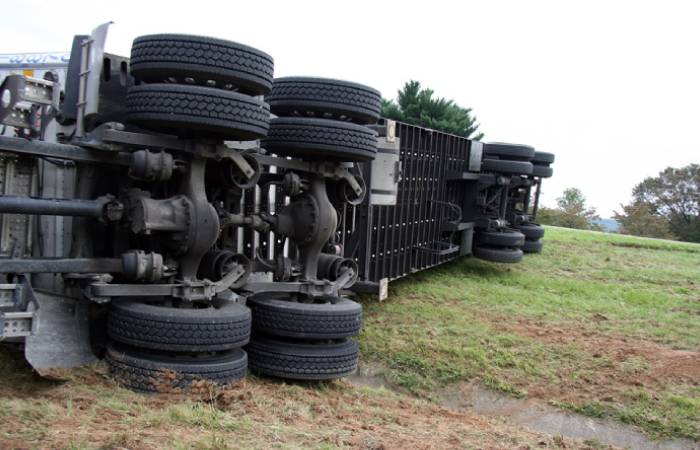Truck accidents can cause life-altering injuries and significant financial strain. Knowing what steps to take immediately after the accident can make all the difference in your health and your compensation.
If you’ve been involved in a truck accident, here’s a direct guide to navigating the aftermath.

Dealing with Legal Action
If negotiations fail, you may need to take legal action. A skilled attorney can guide you through the process of filing a lawsuit against the responsible parties, whether it’s the truck driver, their employer, or another involved party.
Consider a Michigan truck accident lawyer to help you navigate the legal complexities and secure the compensation you deserve for your injuries. Litigation can be time-consuming, but with an experienced lawyer, you’ll have a better chance of winning the compensation you deserve for your injuries.
Seek Medical Attention Immediately
Your health is the top priority. Even if you don’t feel injured immediately, it’s essential to seek medical attention. Truck accidents often cause internal injuries that might not show symptoms right away.
A doctor can assess your condition, diagnose any underlying issues, and document your injuries for future reference. This documentation is crucial for both your health recovery and any potential legal claims.
Detect Hidden Injuries Early
Many injuries from truck accidents, such as brain trauma or internal bleeding, may not be immediately obvious.
These injuries can worsen over time, and delaying treatment can lead to serious complications. A medical professional can perform tests and evaluations to catch these issues early, ensuring you receive the necessary treatment to recover fully.
Establish a Medical Record
Having a documented record of your injuries is crucial for proving the extent of your injuries later on. This record will be important if you file an insurance claim or pursue legal action.
Without documentation from a healthcare provider, it may be difficult to link your injuries to the accident, making it harder to secure the compensation you deserve.
Report the Accident to Authorities
Call emergency services and file a police report after the accident. The official documentation from the police provides a detailed record of the incident, which will be important for any insurance claims or legal actions.
Without this, you may face challenges proving fault and securing the compensation you deserve. Be sure to get a copy of the report for your records.
Document Everything
Gather as much information as possible about the accident. Take photos of the scene, your injuries, and the damage to the vehicles involved.
Get contact details from witnesses, other drivers, and involved parties. This evidence can play a critical role in establishing liability. The more information you have, the stronger your compensation case will be.
- Take detailed photos of the scene: Capture images of the accident site from multiple angles. Include wide shots to show the overall situation and close-ups of any specific damage to vehicles, property, or road signs.
- Document your injuries and medical treatment: Keep a detailed record of your injuries, including any visible signs such as bruises or cuts. Track all medical appointments, procedures, and treatments you’ve received.
- Gather witness statements: Witnesses can provide an impartial account of the accident, which can be invaluable in supporting your version of events. Get contact information from any bystanders who saw the accident, as their testimonies may be critical in proving liability.
- Record communication with insurance and legal parties: Keep a log of all interactions with insurance companies, lawyers, and any other involved parties. Note dates, times, and the content of conversations or correspondence.
Understand Your Medical Needs
Truck accidents often lead to serious injuries like broken bones, spinal injuries, or head trauma. These types of injuries require ongoing medical care, which can result in high medical bills.
Keep track of all your medical expenses, treatments, and any prescribed medications. This will be necessary for calculating the compensation amount you’re entitled to.
Know Your Compensation Options
You may be entitled to various forms of compensation after a truck accident, including medical bills, lost wages, pain and suffering, and future care costs. It’s important to understand all of your compensation options.
Speak with a lawyer to explore what you might be able to claim. Your legal team can help you understand whether you’re eligible for compensation from the driver, the trucking company, or your insurance policy.
Medical Bills and Treatment Costs
One of the most immediate compensation options is reimbursement for medical expenses. This includes hospital stays, surgeries, prescription medications, and rehabilitation therapies.
If your injuries are long-term, compensation may also cover future medical treatments, such as ongoing physical therapy or necessary home modifications to accommodate disabilities.
Lost Wages
If your injuries prevent you from working, you may be entitled to compensation for lost wages. This includes both short-term and long-term income loss, depending on the severity of your injuries.
In some cases, you may also be able to claim compensation for lost earning capacity if the injuries result in permanent disability that affects your ability to return to your job.
The Role of Insurance Companies
After the accident, insurance companies from both sides will likely get involved. Insurance adjusters will assess the damage and determine compensation, but keep in mind that their main goal is to minimize the amount they pay.
Never accept the first offer, as it may not fully cover your costs. Your lawyer can help you negotiate a fair settlement that adequately addresses your medical bills and pain.
Insurance Adjusters Work for the Insurance Company
Insurance adjusters are employed by insurance companies to settle claims quickly and for as little money as possible.
Their job is to assess the damage, evaluate your injuries, and offer you a settlement. While their offer may seem reasonable at first, it’s often much lower than what you’re entitled to, so it’s crucial to have legal counsel to ensure your settlement reflects the full extent of your damages.
Understanding Policy Limits and Coverage
Insurance policies have specific limits on the amount they will pay out for a claim. These limits can vary greatly depending on the type of coverage the at-fault driver has.
It’s essential to fully understand your policy as well, as you may be able to use underinsured or uninsured motorist coverage to supplement any gaps if the truck driver’s insurance doesn’t cover all your expenses.
Long-Term Health and Financial Planning
Truck accident injuries often require long-term care. You may face ongoing medical treatments, physical therapy, or even permanent disability.
As you work through the healing process, it’s important to consider your long-term financial stability. Ensure that you receive compensation for the full scope of your future needs, including any necessary lifestyle adjustments.

Navigating the aftermath of a truck accident can be overwhelming, but understanding the steps to take can help you protect your health and secure the compensation you’re entitled to.
Seek medical attention, document everything, and consult with a lawyer to ensure you don’t miss any critical details. By staying proactive and informed, you’ll be better prepared to handle the challenges ahead.